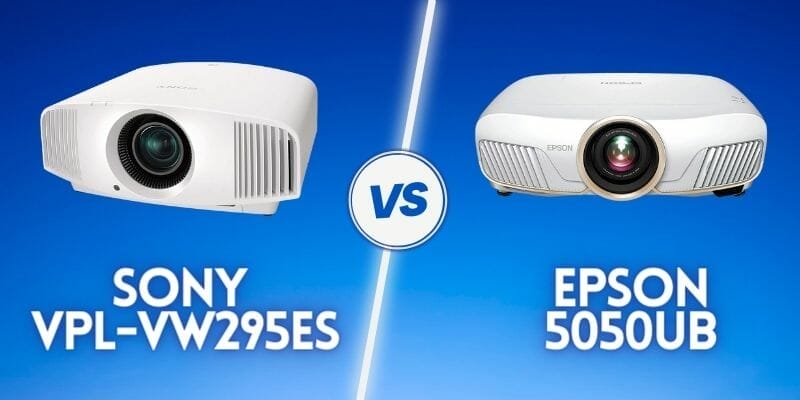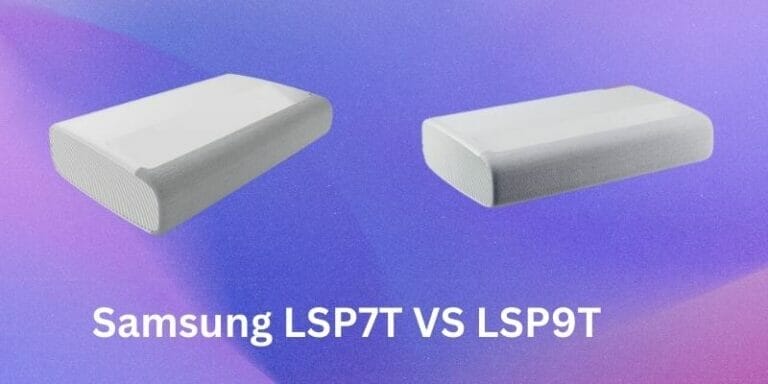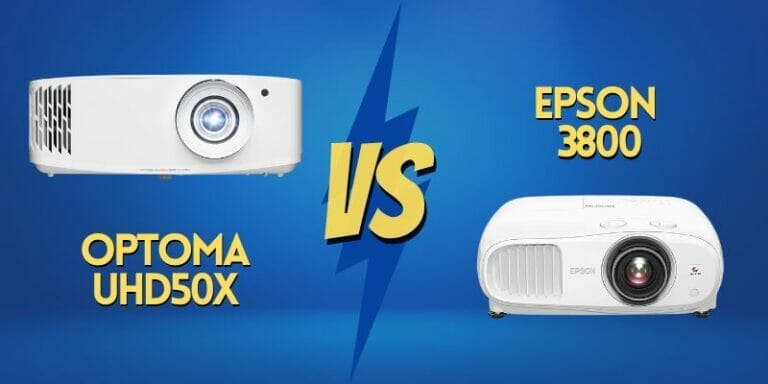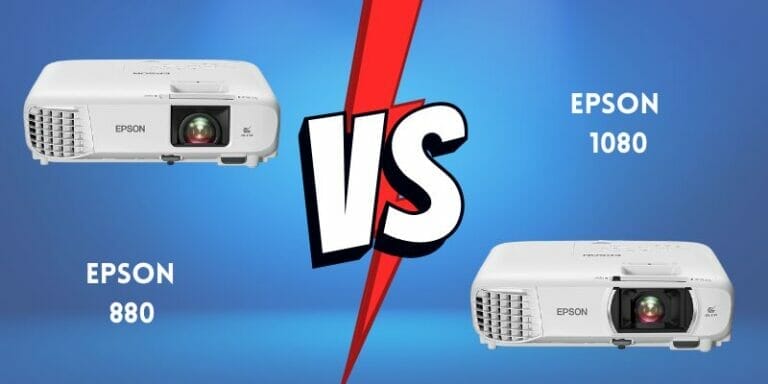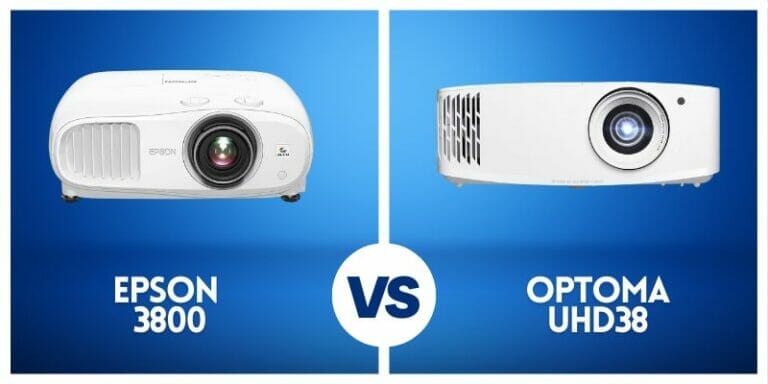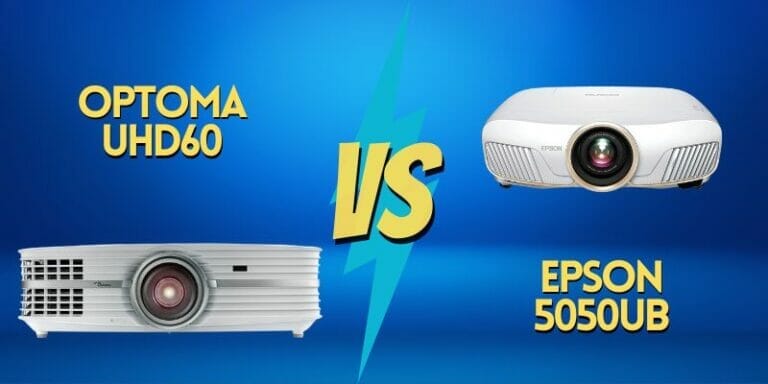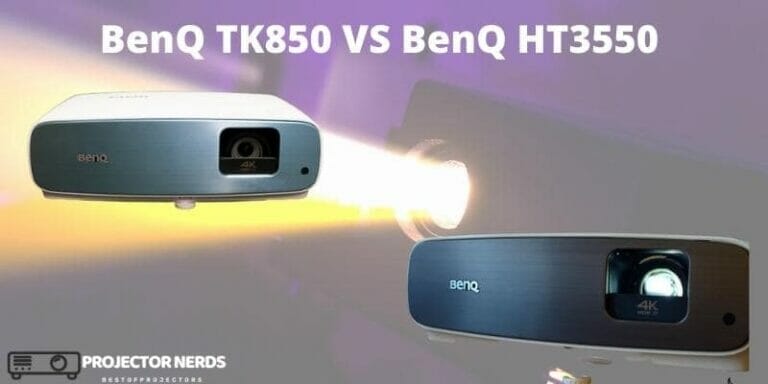Sony vpl-vw295es vs Epson 5050ub – Best Com
Do you have a dedicated home theater and are looking for the best projector to get a cinema-like feel? here I reviewed Sony VPL-vw295es vs Epson 5050ub projectors.
If you are like most people, you would definitely prefer quality to price when it comes to home-theater devices.
But I understand that some people would want a budget-friendly device with all the features of a top-quality projector.
Well, the Sony VPL VW295ES vs Epson 5050UB are two options to consider if you are still confused about which one to buy.
The main difference between the two models, the main difference between Sony VPL-VW295ES and Epson 5050UB is that the Sony projector is true 4K. It gives a much higher resolution and uses 3 imagers simultaneously to display a full 8.8 million pixels on the screen. The result is a much more vivid and crisper image, as compared to the Epson 5050UB model.
I am here to make your life easier by doing the research for you so that you don’t have to waste time watching lengthy videos or reading other long, boring articles to know which option is best for your projector-related needs.
Quick Comparison of Sony VPL-vw295es vs Epson 5050ub
Sony VPL-VW295ES Specifications
- Native 4K 4096×2160 resolution with SXRD technology
- 1500 Lumens brightness
- Contrast ratio of 350,000:1
- Throw distance of 12.3′ – 30.1′
- 60″ – 300″ screen size
- 36ms input lag
- MotionFlow
- IMAX enhanced
- Reality Creation
Epson 5050UB Specifications
- 1920×1080 4K resolution with pixel shifting
- 2600 Lumens brightness
- Contrast ratio of 1,000,000:1
- Throw distance of 10.3′ – 29.4′
- 2.1x Powered zoom and powered focus lens
- 50″ – 300″ screen size
- 27ms input lag
Similarities
While you may be thinking that the Epson and Sony models have little to no similarities, that’s not true.
Both these projectors are HDR compatible, both support 3D are they both have two HDMI connectors.
Overall, both Sony and Epson will give you impressive image quality, and ease of use, and they come with flexible installation options.
Differences
So let’s talk about the major differences between the Sony VPL-VW295ES and Epson 5050UB.
The first thing you might notice is the brightness level. The Sony 295ES comes with a brightness of just 1500 Lumens. This is good enough for a home theater, which is already designed to accommodate little to no light. But for other areas of the home that are well-lit, this level of brightness is not enough.
Another major difference is in the picture quality. The Sony 295ES model boasts native 4K resolution with SXRD technology. This means that it will give you a resolution higher than 4K, paired with an advanced Reality Creation system that will upscale even lower-resolution pictures to nearly 4K quality.
The third major difference between Sony 295ES and Epson 5050UB is the gaming performance. If you are a casual player of video games, an input lag around the range of 60ms is good enough for you to avoid getting frustrated while playing.
But for professional gamers out there, a 36ms input lag by Sony projector is too high for reflex-based games like shooting games.
On the other hand, Epson 5050UB has an ideal input lag range of 23-29ms with an amazing image processing speed to prevent blocking, branding, and other gaming issues.
Installation and setup
In terms of space and installation, the Epson 5050UB will give you more flexibility. Since it can be used in most communal spaces like living rooms because of being a lamp-based projector.
However, because it has a longer throw range, ceiling mount installation will be best for the Epson 5050UB.
Another advantage is that it comes with a 2.1x zoom and 2-dimensional wide lens shift with vertical keystone correction, which will give you more flexibility for aligning the projector to the screen.
On the other hand, the Sony 295ES is a home-theater device. It requires an especially designed dark room because the brightness level is very low. So it’s meant to go in a dedicated home theater.
Also, the long throw distance means that you will need a much larger space to get a big image on the screen. So this model is not very versatile.
Sony VPL-VW295ES Projector
Specially designed to give a true cinema experience at home, the Sony VPL-295ES has all the qualities for making your movie-watching experience immaculate!
You will get crisper and more vivid images, thanks to the native 4K resolution, a trio of SXRD imagers and advanced Reality Creation upscales. You can get any content to near 4K quality, so certain movies and shows will look even better than they are!
However, it does have some downsides for professional gamers, as I mentioned before. The input lag settings cannot be changed much, unfortunately.
The brightness level is enough for a very dark room, but not appropriate for well-lit rooms and other outdoor spaces.
Now let’s talk about the screen size requirements. This particular projector requires a much larger screen size, which means that you will need a bigger room as well.
Another thing I really like about the Sony 295ES is that it has MotionFlow technology. So you can easily watch fast-paced action movies and live sports because this projector will automatically reduce motion blur to keep the image smooth and crisp.
Epson 5050UB Projector
One thing I really like about the Epson 5050UB is its powerful image processing. With real-time 12-bit video processing, it smooths the on-screen action and prevents compression and frame tearing.
There are games nowadays that take full advantage of both 4K and HDR, and the Epson 5050 is great for both!
When it comes to input lag, it is reasonably fast. At 27ms, it is less than one frame behind on 30fps games or two frames behind on 60fps games.
The 5050UB, with its 18 GHz HDMI, can handle anything that is normal content, whether streaming, broadcast, disc, or satellite cable. One limitation is that it can’t do HDR/P3 at 60fps speed. But because there is not much 4K content out there, you shouldn’t have to worry much about this limitation.
With that said, the Epson has some very good optics and appears very sharp at 4K content using pixel shifting. So base your buying decision on other features, as perceived sharpness differences will be minor. I would suggest brightness and black-level performance.
Pros
- Budget-friendly
- More versatile option
- Lower input lag
- Capable of displaying the full three-dimensional P3 color space
- Wireless HDMI hub with four inputs
- A great choice for living rooms and media rooms
Cons
- Bigger in size
- Lesser contrast ratio
- Needs more maintenance
Final Verdict
Those looking for a home-theater device with exceptional quality will be more than happy with the Sony 295ES. Although it is an expensive option, the value for money will ensure that you will get nothing less than a pro-cinema experience at home.
For a more versatile option and a professional-level gaming projector, I will recommend the Epson 5050UB. As a home theater, It will give you brighter images in well-lit rooms, and you can easily set it up indoors or outdoors.

